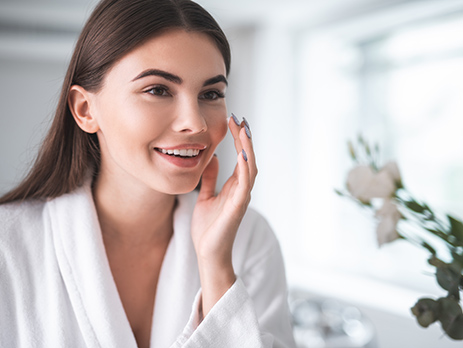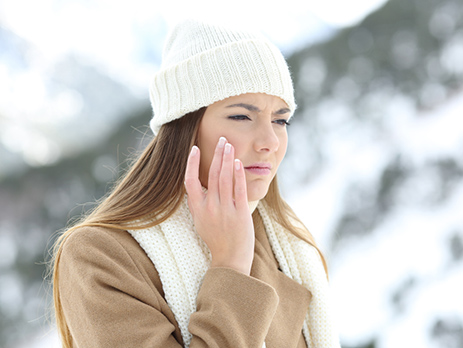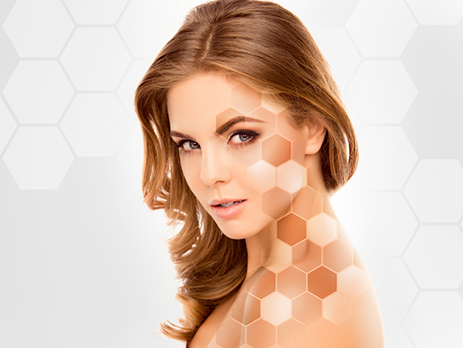How to choose a skincare product?
Beautiful healthy skin is a desire of all of us, but we tend to look at skin only from an aesthetic point of view, even though it has many vital functions, which are very important for our health. However, in order to see our skin in a complex way and protect it properly, we need to know what are the basic functions that our skin performs.
The skin is our largest organ, because its size is about 1.5-2 m2, the exact size of which, of course, varies from person to person. Its primary function is to separate our body from the outside world, but it also connects it to it, since many stimuli are picked up through our skin. The skin is also involved in excretion, thermoregulation, respiration and nervous activity. Yet its most important role is its protective function against environmental influences.
It plays an important role in UV protection – which has many positive effects on the body, but excessive radiation can also cause great damage – which is supported by a healthy epithelial layer and pigment cells. Melanin produced by pigment cells absorbs UV radiation, thus preventing the formation of free radicals.
Its protection against mechanical effects is manifested in the fact that the cells in the prickly layer of the epithelium are very closely connected to each other, thanks to which it resists numerous erosive effects and thus protects the dermis from permanent damage. Various stretching effects can be eliminated thanks to the special structure of the dermis, while our adipose tissue is able to cushion major shocks and mechanical impacts.
Our skin has also built an effective line of defense against pathogens, in which the lipoid mantle, the acid mantle, the skin’s own bacterial flora and the corneal layer play a role, which is actually the primary line of defense. The acidic chemistry and bacterial flora together inhibit the growth of pathogens. The corneal cells of the stratum corneum are practically connected to each other like bricks in a house wall. The corneal cells are the bricks, while the ceramide between them is the mortar. This protection prevents pathogens, chemical substances or even allergens from entering the epithelium.
The skin is also an important channel for excretion, because toxins accumulating in the body have to leave through different channels. Thus, sweat glands, which help excrete the kidneys, also get rid of unwanted toxins through the skin. Thanks to the respiratory function of the skin, it provides oxygen to the biochemical processes of the epithelial layer.
It also plays an important role in thermoregulation, because it protects us from both cooling and excessive warming. With the help of sweat, it regulates body temperature. To keep this in the right balance and not give off too much heat, keratin of the stratum corneum and fatty tissue at the base of the skin help. Also, sebum spilling onto the surface of the skin prevents us from vaporizing too much.
The sensation of caress, the sensation of cold and heat, and the feeling of itching are also due to our skin, because the sensory nerve endings in it ensure that the information reaching them reaches the right place in the brain, where the sensation eventually develops.
From a cosmetic point of view, however, the most important thing is that the skin also plays an absorbing role. Only vapours and gases can pass through it unhindered. In the case of other substances, it is important that both the chemical and physical properties of the material, as well as the barrier function of the skin, the permeability of the hair follicle and sweat glands to the given material. Water-soluble substances can enter the skin through sweat glands, but without outside help, the proportion is very low. Fat-soluble substances can be absorbed through the sebaceous glands or through the stratum corneum. But even fat-soluble substances face obstacles.
So our skin works hard to protect our body from harmful external influences and deliver all the good it needs. Let us protect this wonderful organ, appreciate it and do everything possible to ensure that it can function as long and as well as possible!





